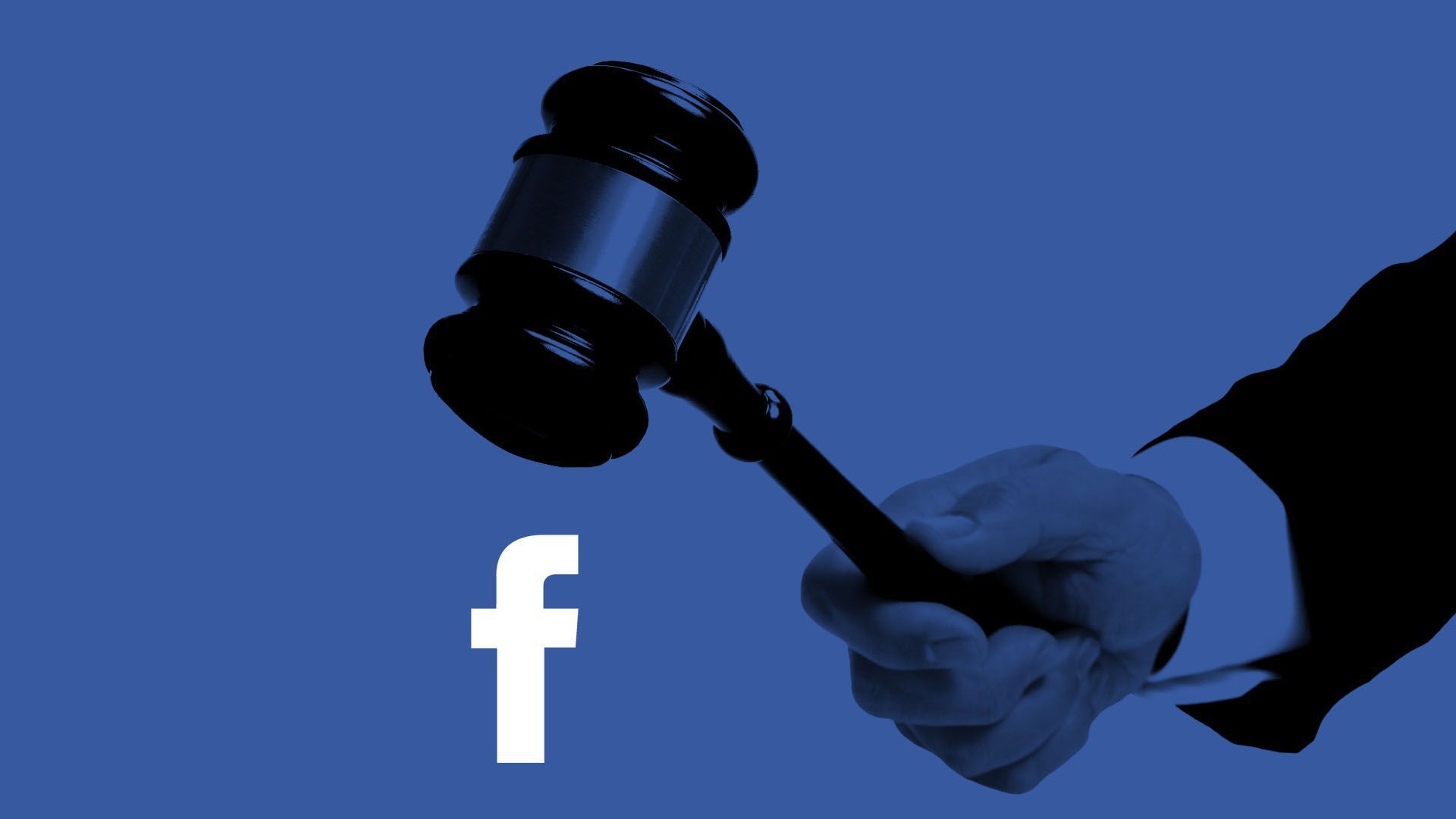Surprises in the Facebook antitrust lawsuits
Add Axios as your preferred source to
see more of our stories on Google.

Illustration: Sarah Grillo/Axios
Facebook has been under federal scrutiny for more than a year, and Wednesday's new lawsuits brought by the Federal Trade Commission and a coalition of state attorneys general showed enforcers want to go a lot further than many observers thought.
Here's what we know now that the suits have landed.
The Federal Trade Commission wants to break up Facebook, not just reform its practices.
- The commission's lawsuit calls for unwinding the previously cleared Instagram and WhatsApp mergers, which it claims allowed Facebook to eliminate competitive threats and shore up its monopoly power.
- The FTC also wants the court to require Facebook to provide prior notice and seek approval for future acquisitions, going beyond what's already required under law under federal merger rules.
The FTC says Facebook's "monopoly" means consumers are missing out on innovation, product quality and choice.
- The complaint notes that an independent Instagram would have provided a check on Facebook's "treatment of and level of service offered to users" as well served as an alternative personal social network for consumers.
- The agency also argues advertising might be cheaper absent the Facebook monopoly.
Facebook's moves to freeze out competitors raised antitrust alarm bells.
- The FTC argues that Facebook imposed anticompetitive conditions on third-party software developers' access to interconnections to its platform, and cut off API access to firms it perceived as competitive threats.
- The conditions both deterred developers from including features that may compete with Facebook and, by terminating access, helped prevent promising apps from growing into threats, says the FTC.
- Facebook argues that some apps that had access tried to replicate Facebook unfairly, prompting the policies.
States were united in their effort.
- Ultimately, 48 attorneys general participated in the state suit, including California, which had been cagey about its involvement. By contrast, the recent Department of Justice antitrust case against Google won support from only 11 states, all with Republican leadership.
Privacy, regulators now say, is a competition concern.
- The state lawsuit mentions privacy dozens of times, arguing that Facebook users have a closely surveilled experience on the platform due to Facebook's size and scope.
- The lawsuit reads: "Facebook’s conduct deprives users of product improvements and, as a result, users have suffered, and continue to suffer, reductions in the quality and variety of privacy options and content available to them."
- State AGs also argue that WhatsApp was a privacy-focused app before its acquisition and Facebook slowly eroded its privacy protections.
What's next: Regulators hope their tough message to Facebook will deter other companies from similar behavior. But they have to win in court for that message to stick.
Go deeper:

